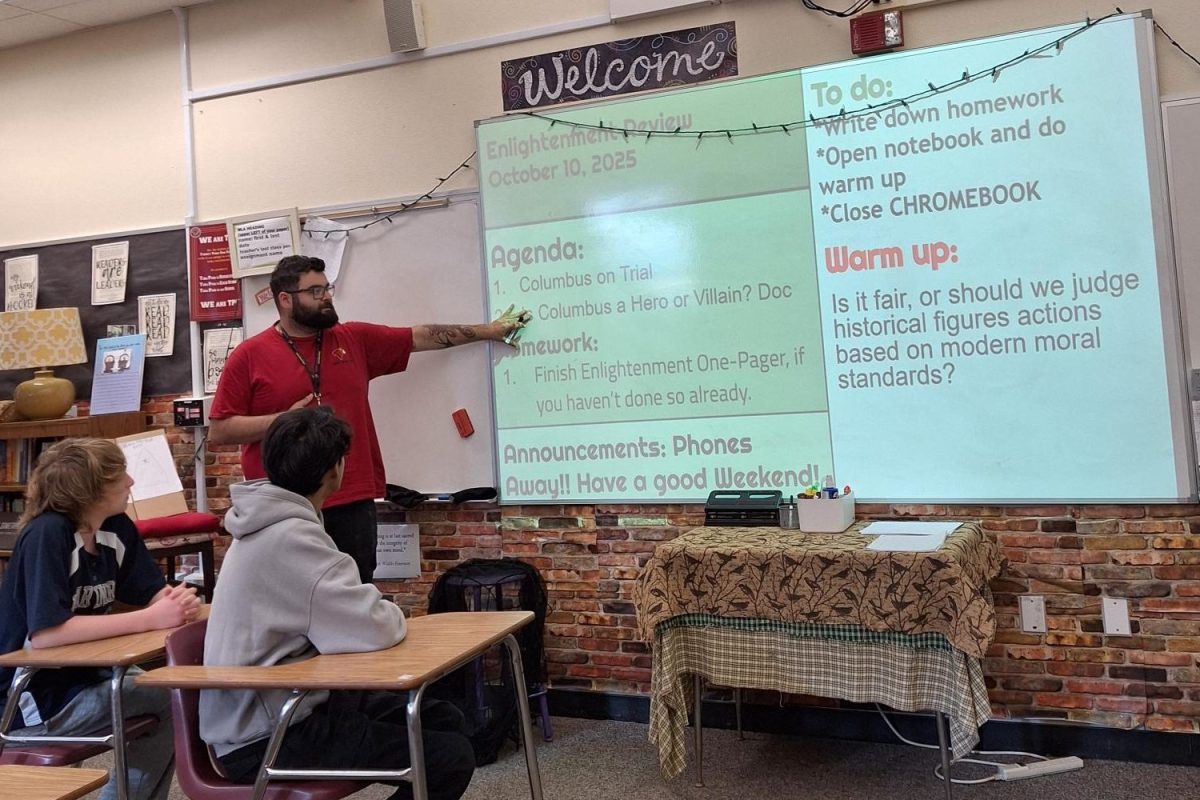As responses from colleges flow in, the question as to what these institutions really weighed in their decisions may be at the forefront of students’ minds. From private schools to public, urban to rural, do these colleges all weigh the same factors when it comes to their upcoming students, or does each one look for something a little bit different from the rest? College counselors Deni-Kay Freier and Sylvia Caruthers spoke with the Falconer about what exactly universities take into consideration and the best course of action students can take during the application process, and the time leading up to it.
When should students ideally start preparing their applications?
Freier: Truthfully, I think they should start over the summer. I think if you’re in a position to have everything filled in the Common App and have your personal essay done. It just makes your fall semester a lot more manageable
Caruthers: Most students begin in 10th or 11th grade, depending on their goals. Those aiming for Ivy League or other highly selective schools may benefit from starting as early as 9th grade, as their application strategy often involves a longer runway.
How do you recommend students stay organized throughout the college application process?
Freier: I think the best way to stay organized is to start with somewhat of a list of when you want things done, you know, in the beginning of the summer, maybe planning out key dates and then holding yourself responsible, you know, accountable.
Caruthers: Hire a professional if possible — but short of that, start a spreadsheet to track tasks and deadlines. For example, list every required and supplemental essay. If you’re applying to the UC’s and even one private school, you’re likely writing at least five essays.
How do colleges evaluate GPA and course rigor?
Freier: I think colleges look at GPAs on a very school dependent basis. They’ll have a profile of your school, and they’ll be able to tell what I don’t know, but they’ll have a good sense of what somebody in the top of your class will be. So I think they look at GPAs not so much as the number, as where you fit in the class, the information that the that your school gives, as well as just, you know, typically, what happens for a big school, they’re going to see people over and over from your school, and they’ll have a sense of what a top GPA is. I mean, obviously A’s are really important, but with grade inflation, they’re really gonna try to hone in on what your GPA means in the confines of your school.
Caruthers: Each college has its own approach, but the UC system provides a great starting point with their list of 13 comprehensive factors considered in admissions.
What do you recommend students do if they had a bad grade/difficult semester?
Freier: One bad grade, I don’t think is the end of the world. A bad semester is a little bit rougher, but there’s a thing, there’s an additional information section in the common app. And if there’s a reason why you had one bad grade or a really bad semester, I would go ahead and explain it, because it’s going to stand out, so you might as well give it context, right, not with excuses, but as a way of explanation.
Caruthers: If your grades dip, don’t panic — there are always paths forward. Your target schools might shift, but you can still find a college where you’ll thrive and have an incredible experience.
What common mistakes do students make on their college applications?
Freier: I think one of the other things that kids fall into is in their activity section, they are really describing the activity rather than what they actually have done for the activity. So the activity section is so important to really highlight your impact, what you have done for the organization or in the activity, rather than just a description of what the activity is.
Caruthers: Weak essays are the most common issue — and it’s not the student’s fault. Writing about yourself is hard. But this is your moment to stand out, and it requires reflection, strategy and confidence.
How important are extracurricular activities in the admissions process? What kinds of activities/achievements stand out to colleges?
Freier: Well, activities are super important. I think in this day and age, grades are sort of a given. Everybody needs to have a strong GPA with rigorous classes, and then it comes down to, what else do you do? And colleges are now looking for people that are sort of experts or leaders in a specific area. And there is no one area or activity that stands out, but whatever it is, it should be something that you have done in several different ways and done really well at so for instance, it can be any activity, but the more niche it is, the more interesting. Typically, colleges like something that they haven’t already seen, and they want to see that you delved into it pretty deeply and will bring those skills to their university.
Caruthers: Some involvement outside the classroom is essential. If you’re applying to competitive schools, you should assume your peers are doing a lot — and plan accordingly.
Is it better to be well-rounded or specialize in one area of your application?
Freier: It’s better to specialize in one area. They’re not looking for generalists. They’re looking for experts. They really want people that bring something very specific to their college.
Caruthers: Specializing tends to be more impactful — especially if you already have a sense of your intended major. It shows focus and commitment.
What makes a college essay stand out? Are there topics students should avoid/target?
Freier: There are certainly things that are better, you know, some topics are very common, you know, I overcame an injury, or talking about how sports made them a good team member. You know, those kinds of things are very common. But I think the most important thing is that you make your personality come alive. You want the admissions officers to read your essay and walk away from it saying, I want to know that person. I want that person on our campus. I don’t think the topic is as important as how you write it and how you shine through.
Caruthers: Writing about something deeply personal and unique to you. A quick tip: search for common topics to avoid — there are plenty of lists out there for reference.
How important are SAT/ACT scores now that many schools are test-optional?
Freier: I think they’re getting more important again. I think that, you know, there was a time where colleges said they were optional, and it really was optional. I think that’s true still for many schools, but there’s the more rigorous schools, a lot of them are going back to caring about the SAT or ACT. So I think that if you have an ability to submit a score, it only enhances your application. And I think that more and more schools are going to start making it mandatory.
Caruthers: For the UC’s, test scores aren’t considered at all. But for highly selective colleges, a strong score can still make a difference, especially when admit rates are under 10%.
How should students build a balanced college list?
Freier: It’s important for a balanced college list to obviously have those schools that are sort of high reaches, that are, you know, kind of dream schools. Think it’s important to have schools that you are excited about and that are pretty likely that you’ll get into or there’s a reasonable shot. And then I think it’s incredibly important not just to have safeties on your list, but safeties where you’d be happy to go. So I am a huge believer, in addition to looking at colleges where you want to go, I think it’s important to visit safeties and see where you could, where you could see yourself in the worst case scenario.
Caruthers: Compare your unweighted GPA to the averages of admitted students at each school, and make sure your list includes a few options with 50%+ acceptance rates to keep things realistic.
What is the most important part of a college application?
Freier: I don’t think there is one important part. I think it’s important that each aspect is addressed in a very targeted way, and that all those components fit together. So instead of saying there’s one important one, I’d say that they fit together and create a cohesive story is more important.
Caruthers: There’s rarely one single factor. Your essays, activities, and accomplishments collectively set you apart — especially when many applicants have similar GPAs and scores.












